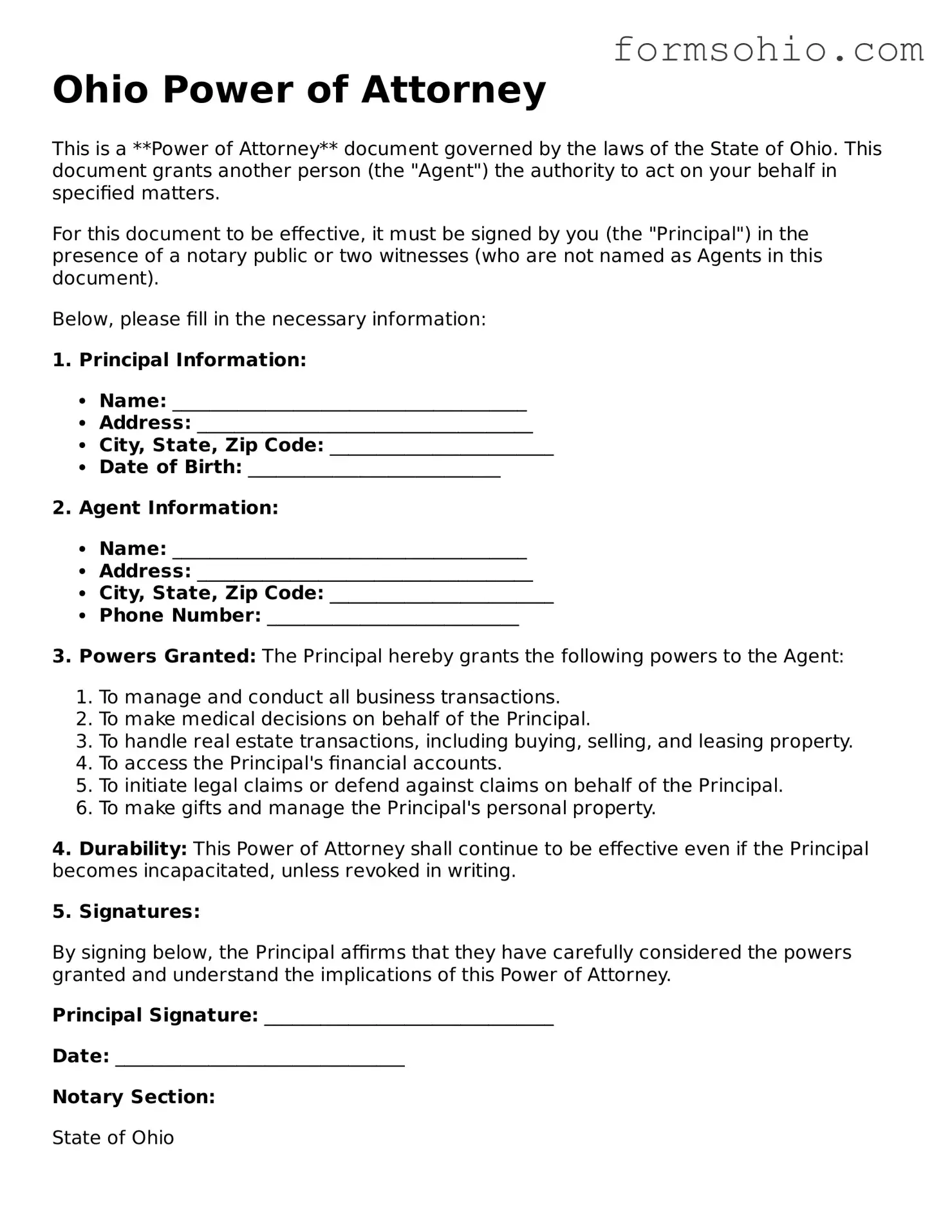Printable Power of Attorney Template for the State of Ohio
A Power of Attorney form in Ohio is a legal document that allows one person to grant another individual the authority to make decisions on their behalf. This can include financial matters, healthcare choices, and other important aspects of life. Understanding this form is crucial for ensuring that your wishes are respected when you may not be able to express them yourself.
Get This Document Online

Printable Power of Attorney Template for the State of Ohio
Get This Document Online
Complete this form efficiently and quickly
Complete Power of Attorney online without printing hassles.
Get This Document Online
or
Free PDF File
